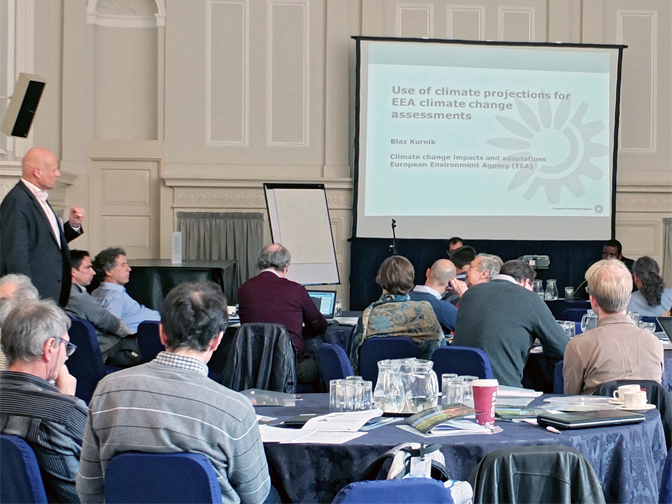

ECMWF has held the second in a series of workshops it is organising to help shape the Copernicus Climate Change Service (C3S), which it is implementing on behalf of the EU. These workshops are all designed to facilitate an exchange of views between users and providers, to assess the current state of play and to better define the role of different components of the Service, building upon and expanding beyond current capacities in Europe.
This second workshop, on 20 and 21 April, focused on climate projections. It explored the potential use of existing climate model projections at global and regional level for the development of C3S applications and services, and it set out to identify initial information requirements in this area.
All presentations made at the workshop are now available on our website.
Jean-Noël Thépaut, Head of the Climate Change Service and host of the workshop, emphasized the Service’s collaborative approach: “The Copernicus Climate Change Service is about making the most of existing efforts and capabilities, and working together, not just within the science community but also with other stakeholders to understand and adapt to their needs. Our aim is to build upon the wealth of existing science and information but to make it more easily accessible through a one-stop shop approach. It is also essential to respond to specific sectoral requirements when it comes to climate predictions and scenarios.”
Stephen Belcher, Head of the Hadley Centre, stressed that the Copernicus Climate Change Service should be regarded as a great opportunity to bring the community together, and he made it clear that a one-size-fits-all approach was obsolete. He said: “Using the specific example of climate projections, there is a whole range of different approaches by countries in Europe. The Copernicus Climate Change Service can get European states to think in a more joined-up way on what information needs users have. Everyone wants scenario models, but when it comes down to numbers and data, different users want different information. For example, rainfall and temperature is important for agriculture, coastal communities are interested in local sea level rise and coastal surges.”
The workshop allowed climate scientists to hear from users representing sectors ranging from health to water management. Findings from the working groups will be published in the near future.
